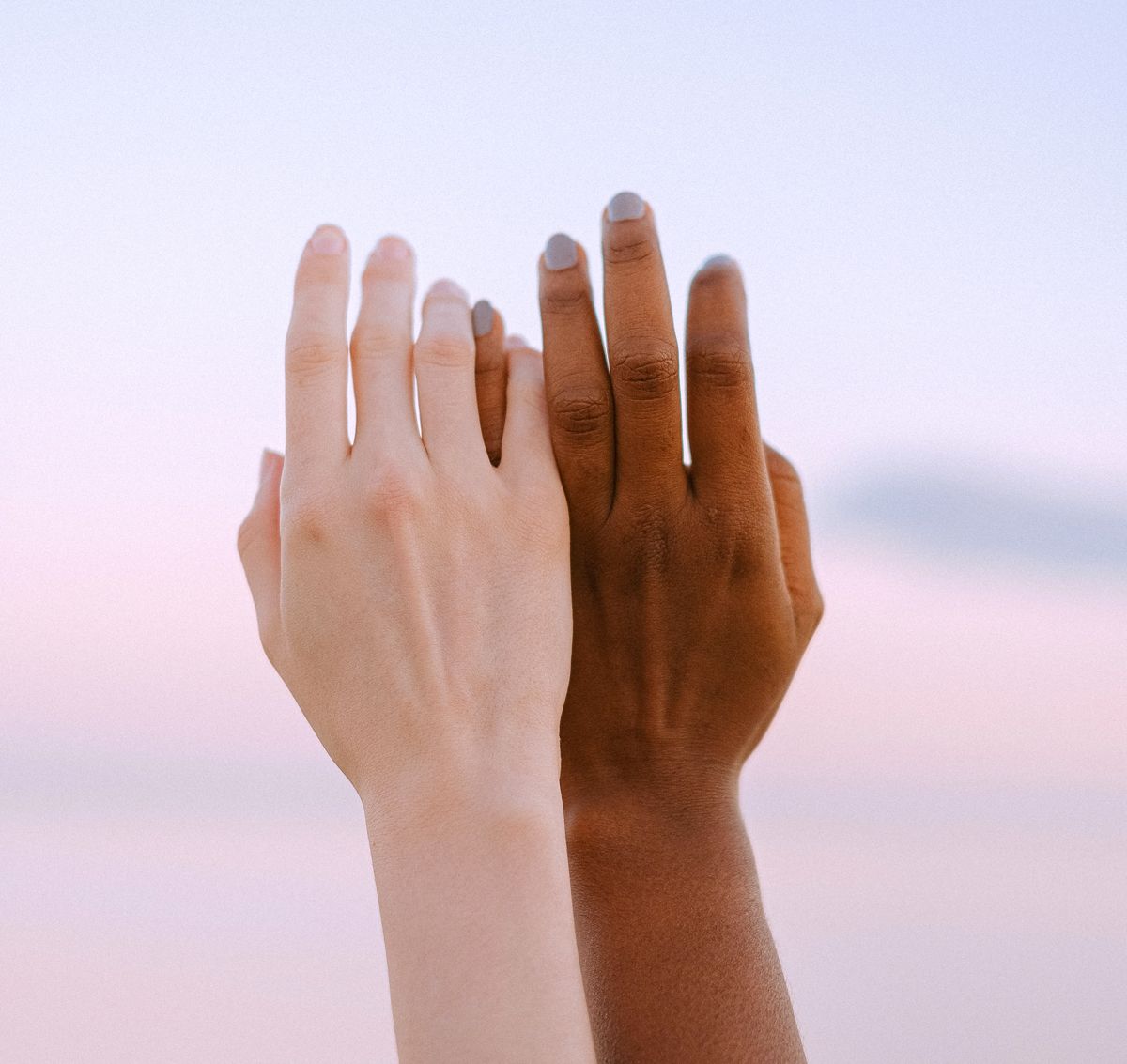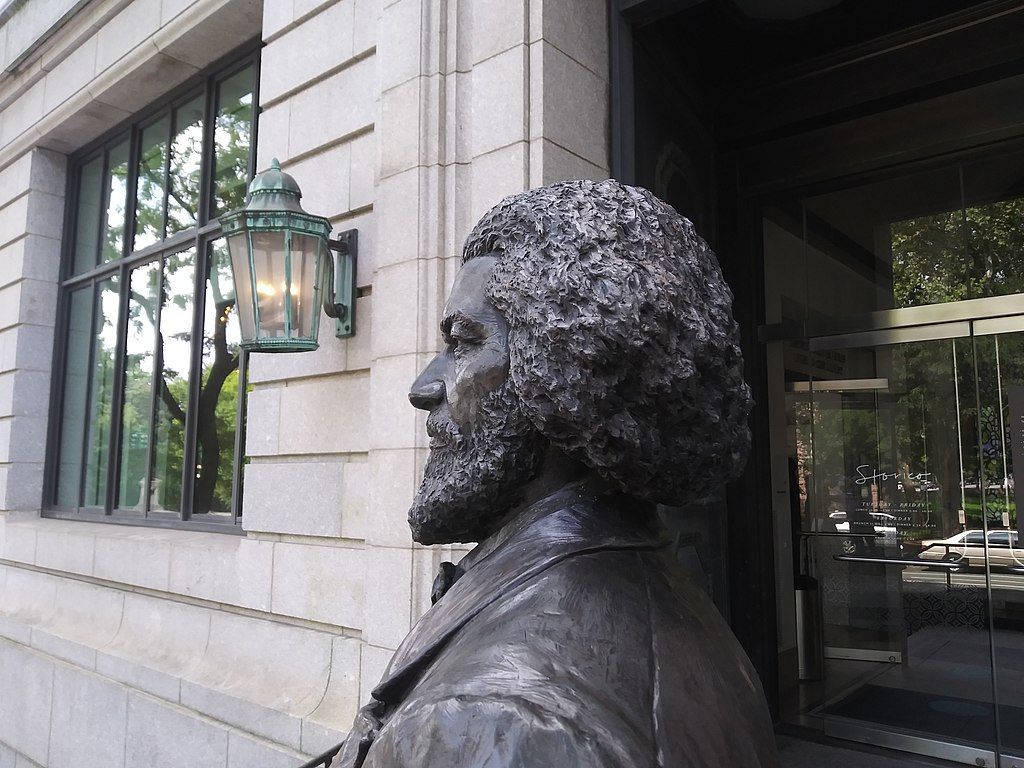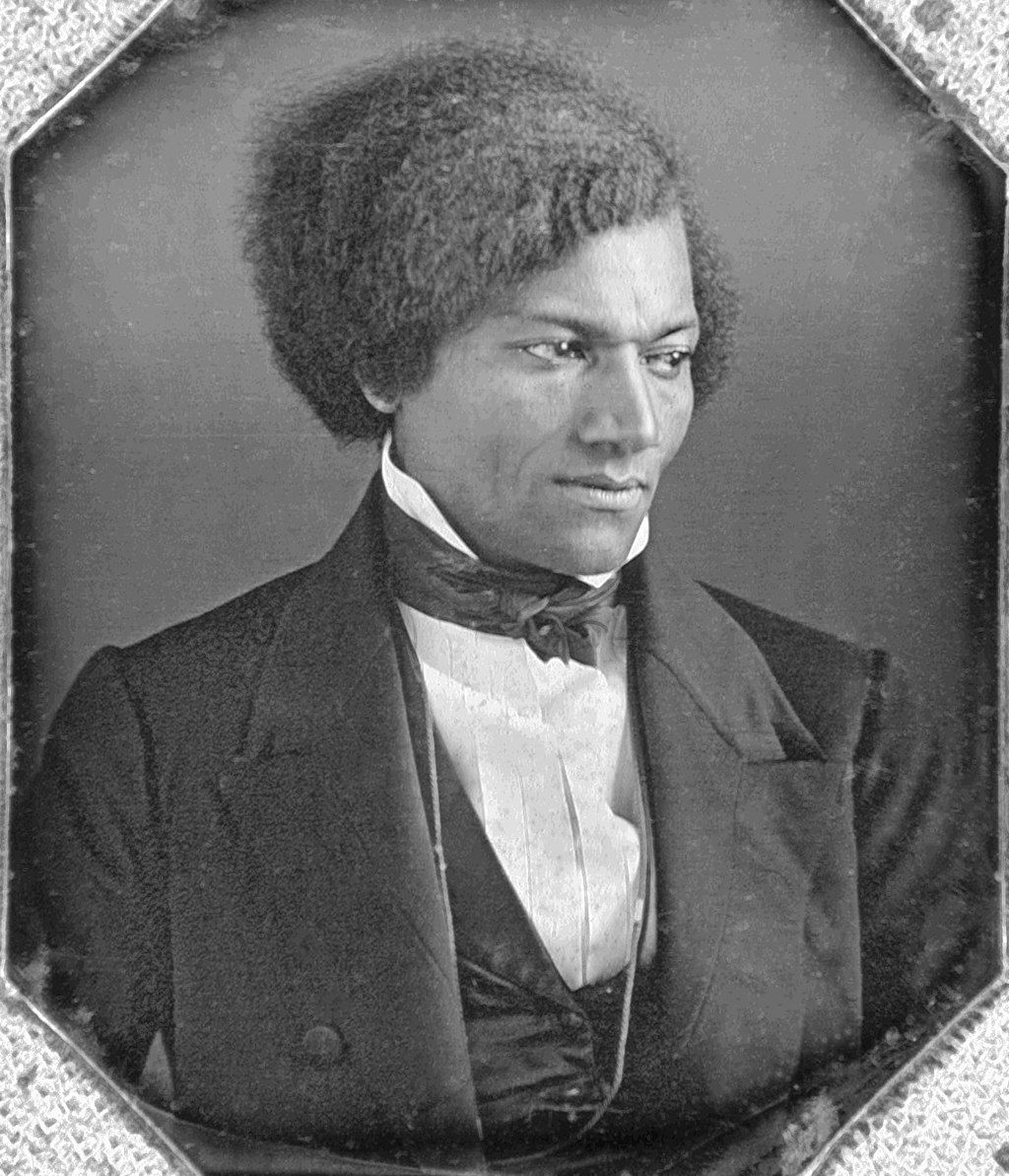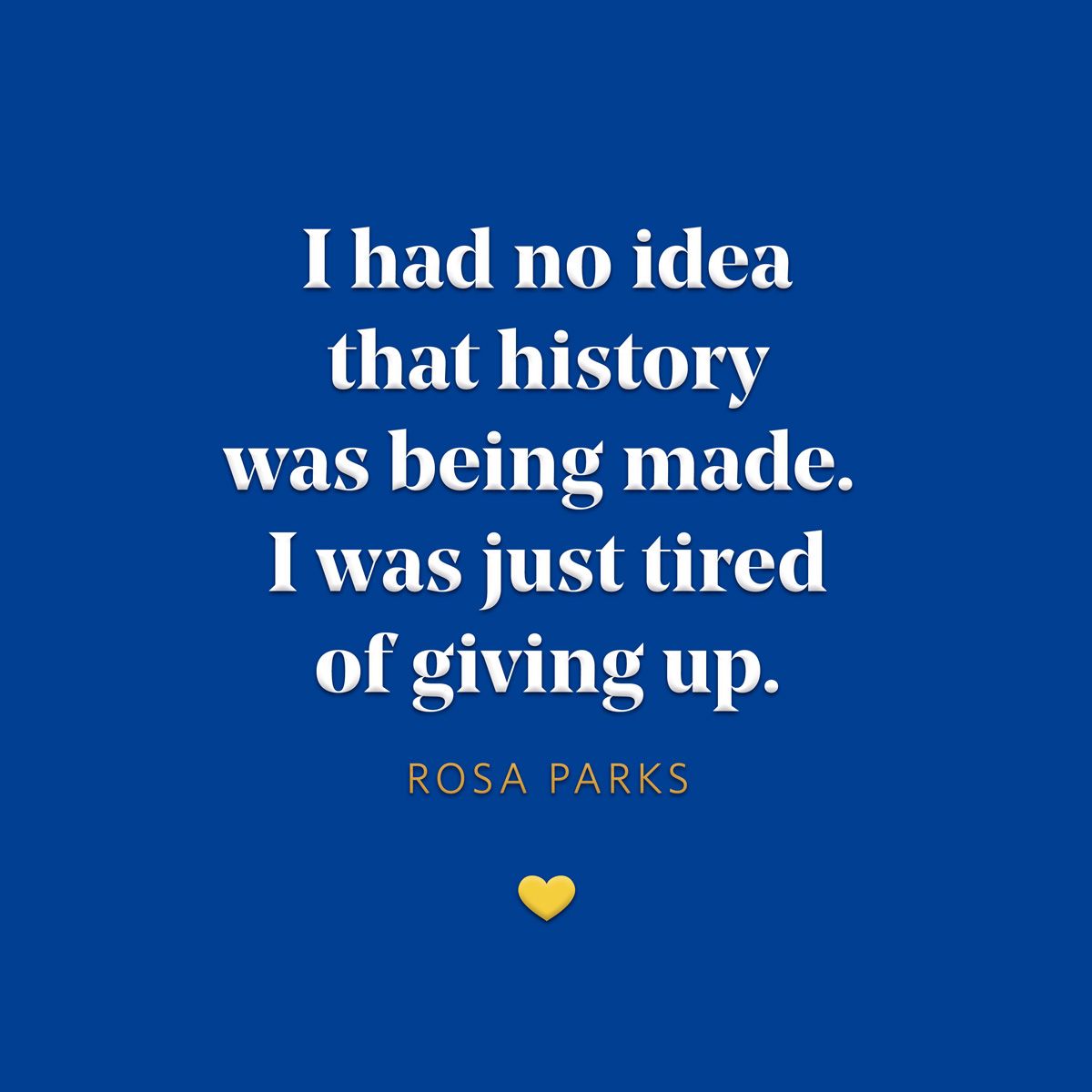|
OHF Weekly, Vol. 5 No. 7: Editor’s Letter, “Frederick Douglass: An American in Ireland” (Part 1), and a quote by Rosa Parks. Editor’s Letter💛 Hey Reader, I’ve noticed a trend with those who subscribe to the tenets of Christo-Fascism. They tend not to come up with an original idea of their own but have a penchant for co-opting terms and repurposing them for less-than-honorable deeds. Take for instance “woke.” Black folks first coined the term in the early twentieth century in the phrase “stay woke,” a pithy call to remain vigilant, aware, and “awake” to the barrage of social issues and ills that were wrought against Black Americans. Today, the term has been co-opted and is used as a pejorative against anyone who disagrees with the evangelical neo-Nazi Christo-Fascist agenda. But I don’t think evangelicals realized, until just recently, that they’ve played themselves. Their craven desire to take the country back to a time when only white land-owning men ruled, white women were gleefully subservient, and non-white women were viewed as objects of scorn or exotic sexual playthings ripe to fulfill sexual fantasies, and the rest of us non-whites simply knew our place out in the fields compliantly liftin’ barges, totin’ bales, or breedin’ more enslaved labor to build the American dream for land owners—exposed them for who they were and transformed their own “evangelical Christian” brand (which originally meant to spread the good news of the Gospel) to become synonymous with hate, bigotry, and oppression. While their attempt to turn the clock back a hundred years hasn't been a complete success, the transformation of their brand has worked really well. They’ve essentially thrown the Savior, the sheepy demeanor, and any pretense of humility out with the holy water and replaced it with a golden calf of their own making, complete with the wolf’s rapacious appetite for theft, murder, and destruction. In doing, so they’ve shown us without hesitation who they are. Time and time again. What is one to think when evangelicals fondly embrace a new version of the same old Nazi nationalist beliefs and practices draped in the Stars and Bars? How can anyone in their right mind deny that someone has a racist bent when their words and actions bellow we hate you. Yea, even while draped in Old Glory. Are we to believe their truth and doubt our lying eyes? Jesus said, “You will know them by their fruits. Are grapes gathered from thorns, or rings from thistles?” Call me crazy, but it seems to me Jesus was encouraging folks to “stay woke.”  During the Super Bowl, a disturbing ad debuted. A slow, bluesy track with a driving beat played while high contrast black and white images of various people caught up in public, white-hot conflict with one another streamed by—a citizen shrieking in the face of a cop clothed in riot gear, a man restraining a diner customer from lunging over the counter at the diner’s cook, neighbors screaming in rage from their respective balconies at each other, a middle-aged father yelling in a blind rage at his adult son, a high school girl striking another girl in the face, masked nurses standing in the middle of the street in front of a furious anti-vaxer . . . in her car, an all-out barroom brawl on an airplane . . . the stakes and violence depicted are ratcheted up with each image . . . shell casings on the street with police crime scene tape blurred in the background . . . cross-fade angry mob sounds, sirens . . . fade to black. And a left hook (white type on a black background): Jesus loved the people we hate. Followed by a right jab (more white type on a black background): He gets us. (“us” in yellow; their emphasis, not mine. Definitely not mine.) There’s no denying the images and music are compelling; but as a lifelong, practicing Christian and human being who is viewed as a member of several groups evangelical Christians have demonstrated their hate against, this slicked-up, rebranding of Jesus—in the same color palette of Black Lives Matter and lacking an ounce of self-awareness, left me chilled and outraged. This is simply an extreme makeover of the same old white supremacist hierarchical nonsense Black, Indigenous, People of Color, marginalized people of all stripes, and their allies have fought against and died over for the past 400 years. I’m admittedly no scholar of scripture, nor am I a cleric in any way, shape, or form, but right off the bat, there are a few points the He Gets Us (HGU) folks overlooked (maybe sidestepped) in getting this first in a year-long campaign to market. Observation 1: Jesus loved the people we hate.One of the foundational tenets common to Christianity is that Jesus Christ was crucified, died, was buried, and he arose on the third day. Even non-Christians are familiar with this pillar of the faith. No disrespect or shade thrown at non-Christians. The point is HGU’s use of love in the past tense is inconsistent with Scripture. Now one could also interpret “Jesus loved the people we hate” to mean that Jesus either habitually loved or at some point stopped loving the people HGUs hate. This too is patently false as it contradicts Scripture’s repeated pronouncements that God is love, and Jesus and the Father are one, therefore Jesus is love. (Well, it’s not that simple; but it’s in the Bible.) The point that has slipped HGU’s mind hive is that Jesus, a host of Apostles, and way more Old Testament prophets have told us he will love us for all eternity. Therefore, that love is interminable, never ceasing, and not lavished in response to performative preconditions. So that statement should read: Jesus loves the people we hate. But they wouldn’t dare put that out there because it creates a-whole-nother set of problems. Namely, most everybody knows Jesus is love and if they or HGUs (or whoever they are) hate, then that puts them in direct opposition to Jesus. How can they vouch for Jesus if they’re opposing his very nature? Then there's the fact they aren’t even trying to sugar-coat their hate. No soft soaping here, folks. “We hate.” There’s no attempt to seek absolution or forgiveness. Not even a coy hint of “We know we shouldn’t hate, but we can’t help it. We just hate, you people, because you're different from ‘us.’” No oopsies or do-overs. They hate. The End. But they’re only telling us what we already know, right? [shudders] Credibility is key if you’re endorsing a product, especially one as well-known as Jesus. Observation 2: “He gets us.”Tagging these three words on the end is like pouring a pillar of salt into a gaping wound. The first thought that came to my mind was: What in the actual name of all that is holy is this??? It seemed to me the big brains at HGU are hell-bent on maintaining the Us versus Them dichotomy, with HGUs seated at the Savior’s right hand, absolved of any obligation to follow Christ’s command to love one another. This is the thing that just galls me. I wrote about this in a recent interview, and it bears repeating: Christ issues a new command to his disciples that they love one another. But these HGU cats have declined to join Jesus at the Last Supper and bypassed his suffering on the cross to rehab their image. There’s no call to attempt to be a better person, to drop the hate, or change anything that could positively benefit people. Nope. Nothing to see here except a nod to the hatred for their fellow man and a complimentary Pearly Gates eternal pass from Jesus because, you know, he gets them. Take heart, people. If you were creeped out or annoyed by that ham-handed ad, it may have something to do with the things I pointed out. Maybe your Spidey sense was picking up on the cognitive dissonance between the way you’ve seen evangelicals live their lives and this feeble attempt to rehab their “image.” The nation would be better served by evangelicals cracking open a Bible and reacquainting themselves with the red letter verses. (Those are the verses attributed to Jesus.) A quick refresher will reveal that the job of a Christian is not to model perfection. Nor is it to be biased in your dealings with people. The primary responsibilities of a Christian are to love God, be salt (an active preservative against death and decay), and light (to live in such a way that one's life emulates that of Jesus, and points them to him). Everything else—the hatred, the racism, the bigotry, the misogyny, the murder, the book bans, the anti-LGBT crap, the anti-Black sentiment, the gun violence, and all that other stuff—that’s not Jesus. It's bad theatrics. Want to make Jesus relevant? Show, don’t tell. Love one another. Clay Rivers
OHF Weekly Editor in Chief Postscript: It looks like the creators of the awful He Gets Us makeover caught a little flack, because at the end of the video, “He gets us” is now followed by “All of us.”
ALSO FROM OUR WRITERSFrederick Douglass: An American in Ireland (Part I)By Sylvia Wohlfarth The most celebrated Black man of his era, Frederick Douglass was also the most photographed American of any race in the 19th century.
This story began in the autumn of last year when I read these words on a poster: “2020 celebrates Ireland’s connection with Frederick Douglass on the 175th anniversary of the months he spent visiting the country.” And I realised I had never heard of Frederick Douglass. The organisation I volunteer for had decided to cooperate with Cork University to celebrate the 175th anniversary of Frederick Douglass’s visit to Cork in 1845. Together they organised a week-long celebration with a series of talks, lectures, and creative webinars on music and art to commemorate his visit, culminating with a powerful closing event on the 14th of February, his birthday. I recall feeling ashamed at having to admit I had never heard of him. All the more because on the backdrop of the killing of African American George Floyd in 2020, police brutality, and the rise of the Black Lives Matter (BLM) movement worldwide, I began researching the reasons for systemic racism in the USA. As I did not go further back than the Jim Crow Laws introduced after Douglass’s death, I did not include the cross-Atlantic trade of enslaved people and the ensuing global abolitionist movement, and thus failed to discover its famous representative, Frederick Douglass. Retouched portrait of orator, writer, and statesman Frederick Douglass in the 1840s. After escaping a life of bondage, Douglass became a leading advocate for the emancipation and civil rights for African Americans as well as all oppressed people. Image source Wikimedia Commons. I have chosen to write about him and his visit to Ireland because I now wish to look into the life of this inspiring man and share my findings especially with those on this side of the Atlantic, who, like me, may never have heard of this historical figure and how, through the power of his personality and words, he influenced the many people with whom he came in contact. Perhaps, too, many Americans today are unaware of his trip to Ireland in 1845. I have chosen Frederick Douglass in Ireland by Laurence Fenton (2014) as my main source, a well-researched and compellingly written account of Douglass’s tour of Ireland. I will also delve into my copy of Narrative of the Life of Frederick Douglass, an American Slave (1845) to garner his original words. The most celebrated Black man of his era, Frederick Douglass was also the most photographed American of any race in the 19th century. He was the first Black person appointed to an office requiring senatorial confirmation--in 1877, President Rutherford B. Hayes nominated him to be the U.S. Marshal of the District of Columbia. In 1889 President Benjamin Harrison appointed him Minister to Haiti, a post he would hold until 1891. If he were among us today, Douglass would certainly be a media-exposed celebrity inspiring generations of followers both young and old. It is in this light I would like to write about Frederick Douglass, the celebrity whose life was the subject of great public interest.
Read the full article at OHF Weekly.
Final Thoughts
|



